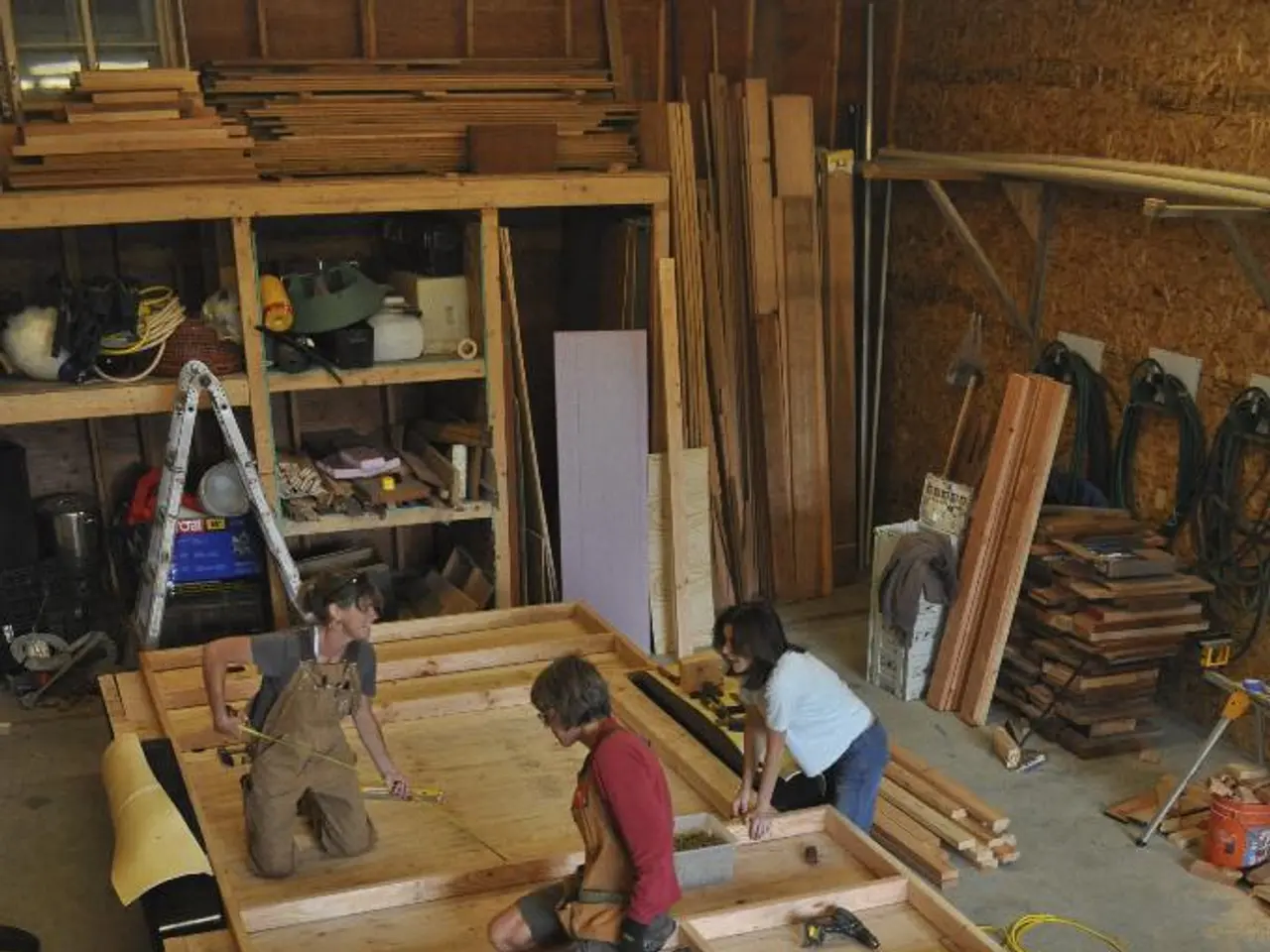DIY Home Transformations versus Professional Services: Which is Best?
Small-scale home improvement projects can be a rewarding DIY endeavour for non-professionals, offering the opportunity to save on labor costs and enjoy the process as a hobby. With the help of resources like NerdWallet's home improvement cost calculator, you can set a budget for your project and determine if it's within your skillset.
However, for larger projects such as remodeling, it may be more beneficial to invest in a general contractor to manage subcontractors. This can help ensure the job is done correctly and efficiently. For minor issues, DIY projects can be worthwhile, especially if you can live with the results.
When it comes to financing, credit cards can be an option for lower cost repairs or renovations, but they typically charge higher interest rates than home equity loans, HELOCs, and personal loans. Home equity loans, offered by lenders like FourLeaf Federal Credit Union and Achieve, provide a lump-sum payment and require fixed interest rate repayment over an agreed period. HELOCs, on the other hand, are more akin to a credit card, with 10 years to draw from the line of credit and interest-only payments during that time.
Banks like Chase, Citi, and American Express often offer credit cards with 0% introductory APR on purchases for 12-18 months and bonus point rewards, making them good options for home renovation financing. Personal loans, offered by banks, credit unions, and online lenders, can provide financing for home repairs or improvements with fixed annual percentage rates and repayment in equal monthly installments over a set period.
When deciding to hire a professional contractor, consider the time you would have to spend on the project and your experience with the job's difficulty. Reputable contractors will have insurance and offer a warranty for their work, protecting the homeowner. Always get estimates in writing and ask for references before making a decision.
Some projects, especially complicated, time-consuming, or dangerous tasks, are better left to experts. Major renovations, structural changes that require permits, and anything that involves tricky electrical or plumbing work should be done by a professional. If a mistake would have pricey or dangerous consequences, it's better to hire a professional home improvement contractor.
For more information on hiring a reputable contractor, visit the Federal Trade Commission's website. DIY projects can be enjoyable and cost-effective, but always consider the complexity, time requirements, and your own experience with the project before diving in.
Read also:
- Peptide YY (PYY): Exploring its Role in Appetite Suppression, Intestinal Health, and Cognitive Links
- Toddler Health: Rotavirus Signs, Origins, and Potential Complications
- Digestive issues and heart discomfort: Root causes and associated health conditions
- House Infernos: Deadly Hazards Surpassing the Flames








